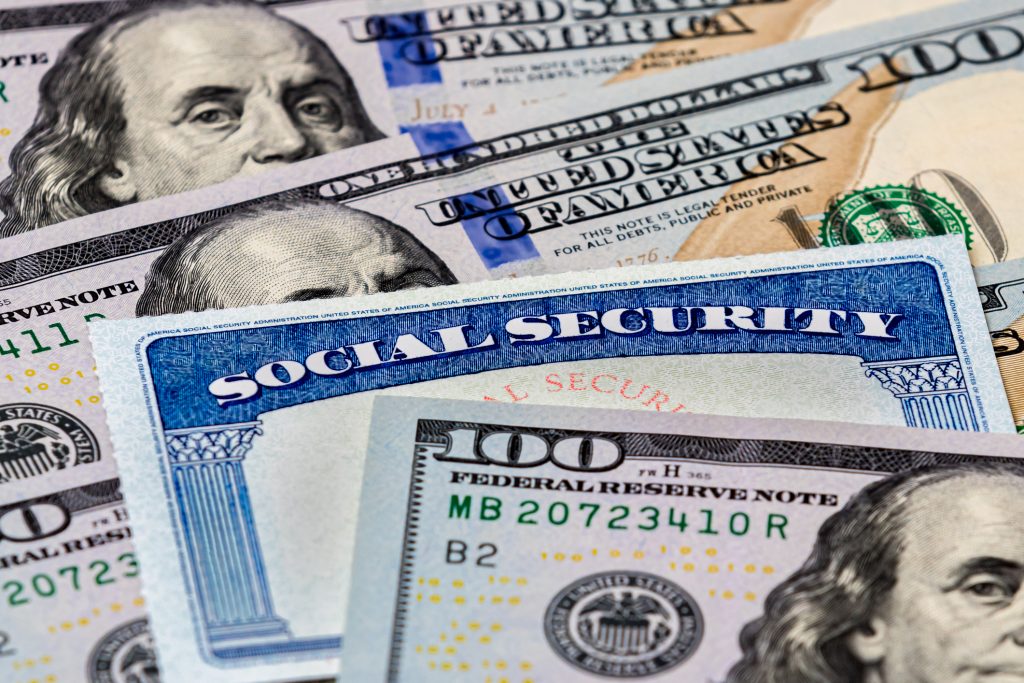
Image source: Getty Images
The age-old etiquette rule of not bringing up politics or religion in polite conversation may still stand, but some new research from Wells Fargo shows that Americans may be more willing to divulge their opinions on these potentially divisive topics rather than share anything about their personal finances.
Here are the financial topics people avoid most and two financial moves you should make, even if they’re uncomfortable to think about.
Savings and earnings are the most taboo topics
The Wells Fargo survey found that personal finance was one of the most difficult topics for people to discuss (57% were reluctant to talk about it), followed by death (46%), politics (40%), and religion (29%).
So, if you’re ever at a dinner party and wondering whether to jump into an existential discussion about the fragility of life, the topic will likely land better than a question about how much your conversation partner earns.
Among money topics, these are the ones that make people squirm the most:
| Financial Topic | Reluctant to Discuss |
|---|---|
| How much money you’ve saved | 65% |
| How much you earn | 62% |
| How much debt you have | 56% |
| Specific investments you’ve made | 51% |
| Financial mistakes | 49% |
Want a financial decision you can brag about? These top-rated high-yield savings accounts pay 4% yields or higher.
Understandably, many people don’t want to talk about their personal finances; after all, they are…personal. But let me challenge you on one point: You don’t have to talk about your finances, but you should be thinking about them.
Saving doesn’t have to be scary
Even if you’re tight-lipped about discussing your savings, it should be top of mind in your monthly financial planning.
If you don’t have much money saved, it can feel overwhelming to know where to start. So, the first step should be to open a high-yield savings account to put your money into. Many have generous yields above 4%, which can help your money grow faster, even when it’s just sitting there.
Many experts recommend having three to six months of your expenses saved in an emergency fund but don’t dwell too much on that if you’re just starting. Instead, focus on saving $500 or $1,000. Comb through your budget to find subscriptions, dining-out costs, and any other spending that could add up to $500 in a few months.
Invest the rest
The historical average annual rate of return for the S&P 500 is 10.2%. While there’s no guarantee you’ll earn that each year (and inflation will siphon off some of your gains), it’s a good gauge for measuring the stock market’s potential.
One of the best ways to invest your money is to buy an index fund that tracks the S&P 500. You don’t need to be an investing whiz to get started. Check out our list of top-rated investing apps to buy your index fund with.
Here’s what 40 years of investing looks like if you buy an index fund starting with $5,000 and contribute various amounts each month:
| Starting Amount | Monthly Contribution | Rate of Return | Years Invested | Ending Amount |
|---|---|---|---|---|
| $5,000 | $100 | 10.2% | 40 | $808,178 |
| $5,000 | $200 | 10.2% | 40 | $1.3 million |
| $5,000 | $300 | 10.2% | 40 | $1.9 million |
Look at those potential returns! Sure, this is just an example, but it still shows how much a relatively small starting investment, combined with modest contributions, can turn into over four decades of investing.
The main point to take away from this is that doing nothing about investing will earn you nothing. But putting a little money aside and contributing to it regularly can mean growing a significant sum over time.
Remember, it’s okay to keep your personal finances to yourself. But make sure you’re not avoiding them altogether. Discuss saving and investing strategies with yourself now, and you’ll thank yourself later for broaching the topics.
Alert: highest cash back card we’ve seen now has 0% intro APR into 2026
This credit card is not just good – it’s so exceptional that our experts use it personally. It features a 0% intro APR for 15 months, a cash back rate of up to 5%, and all somehow for no annual fee!
Click here to read our full review for free and apply in just 2 minutes.
We’re firm believers in the Golden Rule, which is why editorial opinions are ours alone and have not been previously reviewed, approved, or endorsed by included advertisers.
Motley Fool Money does not cover all offers on the market. Editorial content from Motley Fool Money is separate from The Motley Fool editorial content and is created by a different analyst team.Wells Fargo is an advertising partner of Motley Fool Money. Chris Neiger has no position in any of the stocks mentioned. The Motley Fool has no position in any of the stocks mentioned. The Motley Fool has a disclosure policy.
 benzinga.com
benzinga.com fool.com
fool.com



